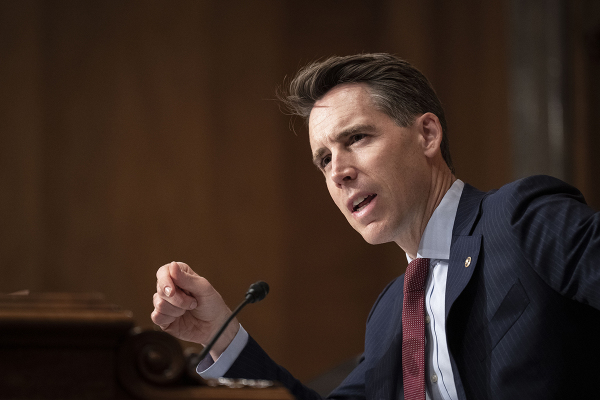Youth Ministers Secondary in Teenage Spiritual Growth
WASHINGTON – Youth ministry leaders across denominational lines are challenging parents and godly adults to become the primary spiritual leaders of teenagers, rather than only leaning on churches to play the critical role.
“The relational influence of parents and godly adults is vital to establishing lifelong followers of Jesus Christ,” the joint statement by 16 top youth ministry representatives read. “Therefore we call on churches to win, disciple and train parents to be primary spiritual leaders of their teenagers.”
The future of youth ministry
The call to action was adopted at the first-ever denominational youth ministry leaders’ meeting in Potomac, Md., on Tuesday and was further circulated at the conjunctive 16th annual National Network of Youth Ministries Executive Committee Conference on Wednesday.
According to the signatories, the statement does not officially reflect the views of denominations. However, it provides a nod to those youth workers who have long struggled to change the traditional focus on programs and activities in training the next generation of leaders.
“Parents and godly adults need to be vitally involved in the lives and relationships with our students,” said Dave Curtiss, the USA/Canada Youth Coordinator for the Church of the Nazarene. “The Church should not be about programs and activities – those are all good, but the primary focus should be on relationship discipleship.”
According to Curtiss, the most significant aspect of the statement is in the fact that the denominational leaders were able to speak as one group on what they feel is the core of youth ministry.
“This will be powerful if every denominational leader that signs onto it will communicate in writing and speaking the same constant message that youth ministry is really about engaging parents and all leaders,” said Curtiss. “Ministry is not about segregating people, leaving the responsibility to pastors, and depositing your children with someone else.”
In coming months, signers will write editorials and articles and speak at conferences challenging other leaders to “rethink how ministry is being done.”
The Church in Ten Years
This new style of family-centered ministry was also a featured topic of discussion at Wednesday’s Youth ministry Executive Council meeting.
During a presentation envisioning “The Church in 10 years,” Richard Ross, spokesperson for the teenage abstinence ministry True Love Waits, identified three types of churches that will likely make up the vast majority of churches in the future.
The first type is the traditional programs-and-activities-oriented church that will continue to do what it has been doing for decades. This type of church is “likely to be eliminated in 10 or 20 years because it simply cannot sustain itself,” Ross said.
The second type is the market-savvy, worship-oriented church that can “seem in every worldly way successful, even though it is not doing what God would like.” This type of church is “going to grow … even if that church does not have depth or a focus on the Great Commission” because churches that seem to offer some satisfaction can still draw a crowd, he said.
The third type of church, or the “healthy church,” is led by leaders who live in personal brokenness and who promote building relationships across the age span. This church will mix generations together and promote spiritual teaching in homes, rather than creating separate divisions for children, youth, parents, and grandparents, Ross explained.
“I think in the future, churches will recognize the importance of immersing teenagers to the full life of the congregation,” said Ross. “Teenagers grow spiritually faster when they are in a warm and intimate relationship with parents who teach the Truth in the context of that relationship.”
A Call to Youth Ministers
Therefore, Ross explained, pastors must struggle to bring parents and youth together for the health of the Church and for the sake of impacting the secular future.
“In the American culture, there is almost no education on how to train parents and how to rear teenagers,” said Ross. “Churches need to fill this role and to teach parents how to spiritually lead every age group of children in their home.”
Paul Fleishmann, President of NNYM, agreed that more must be done on the part of youth ministers to serve not just the teenagers, but their parents as well.
“Youth workers are still needed to equip the kids, but right now we need to train the parents to train the kids,” said Fleishmann. “There is no more teachable person in the world than a parent of a teenager, and we need to help them as they seek help.”
In that regard, the youth ministers’ statement calls on churches to:
• Win, disciple and train parents to be the primary spiritual leaders of their teenagers;
• Highly value the spiritual impact of youth ministers on teenagers, but to view this as secondary to the leadership of parents;
• Place every teenager in a discipling relationship with a godly adult outside their home;
• And highly value student ministry classes, activities and events but to view them as secondary to discipling relationships.





















